Notes on the Passive Voice
Bob Cousins, UCLA, 1999 (more recent additions at bottom)
English grammar allows for the passive voice, but in general the
passive voice in English is extremely bad style. In English
class in school, one learns to use the passive voice sparingly. For
some reason, passive voice became popular among certain
English-writing scientists, but there is no justification for this.
Below are excerpts from four English writing guides I have accumulated
over the years. These are not modern folksy (informal) books; they
are all serious books about good writing style in English:
-
The Craft of Scientific Writing, by Michael Alley.
This is now in its third edition.
-
The Elements of Style , by William Strunk and E.B. White.
This classic, in various editions since 1935, is commonly used
to resolve disputes. My copy is from 1979.
-
A New Guide to Better Writing, by Rudolph Flesch and A. Lass
(1947). It recently appeared in its 50th
anniversary edition with "New" replaced by "Classic" in the title.
-
The Lively Art of Writing, by Lucile V. Payne (1965).
Another old one, still in print.
I do not know if the passive voice is good style in other languages.
But in English, it is bad style except in certain
sentences, as the excerpts below attest.
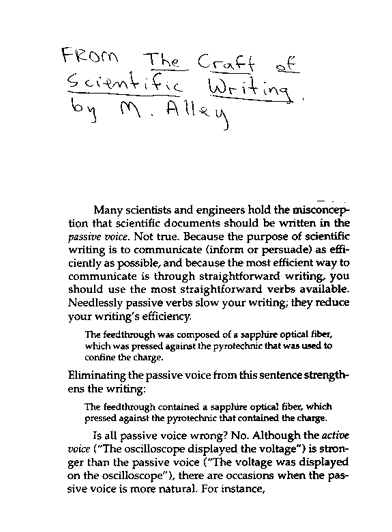
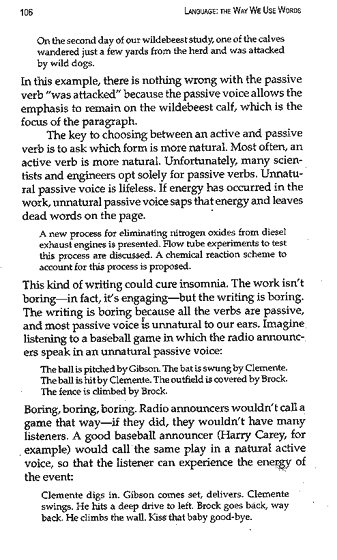
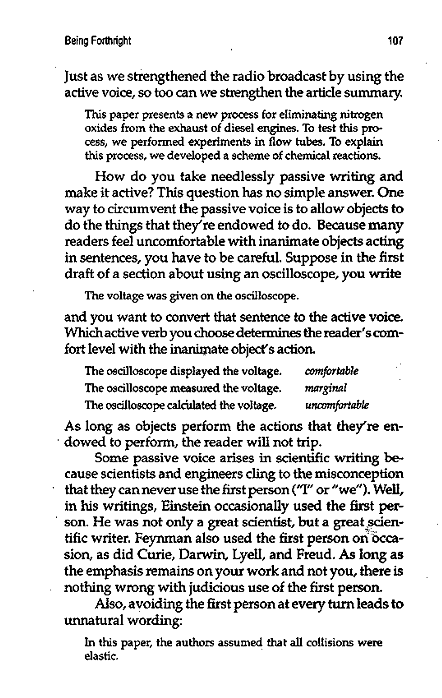
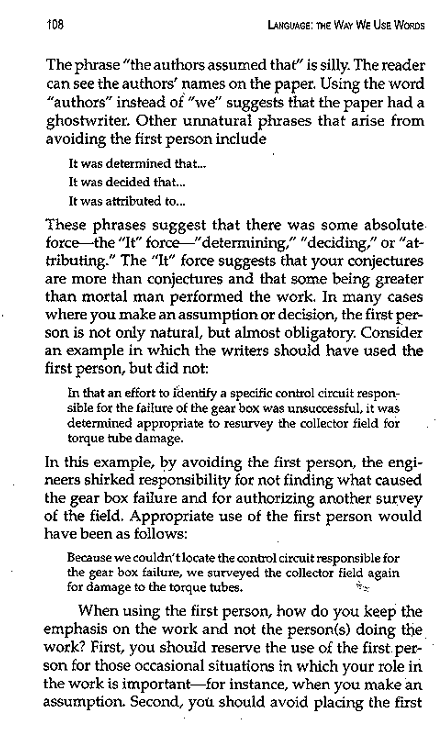
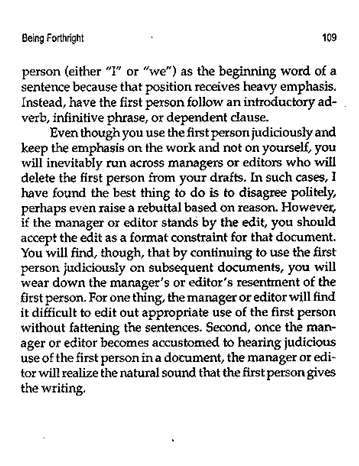
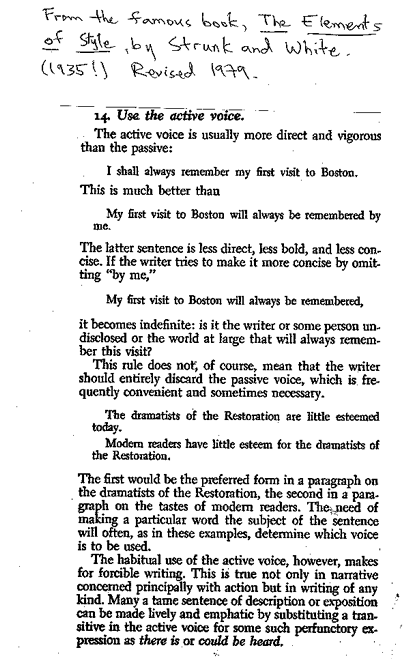
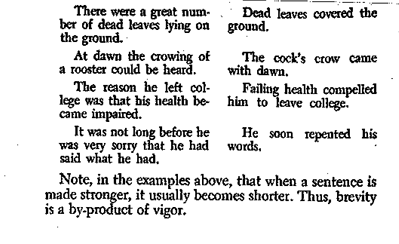
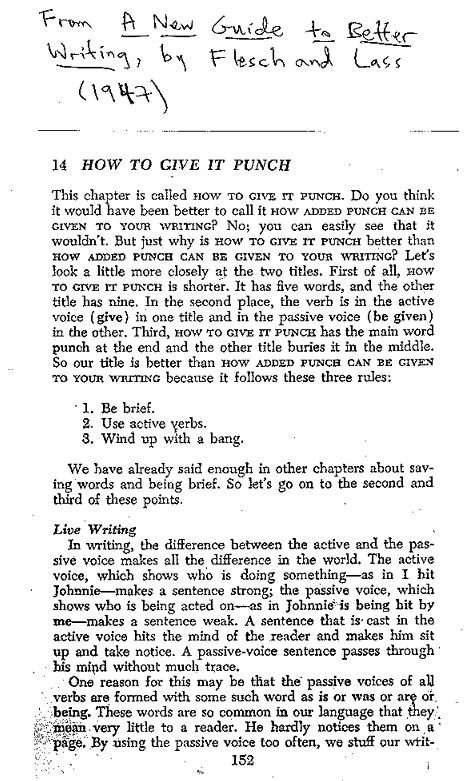
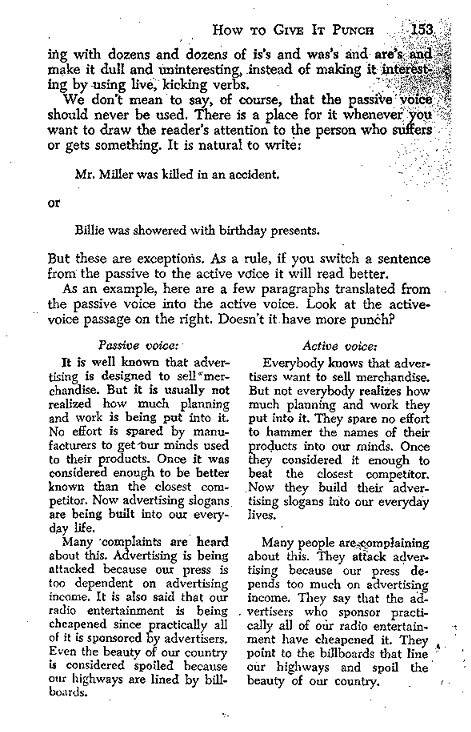
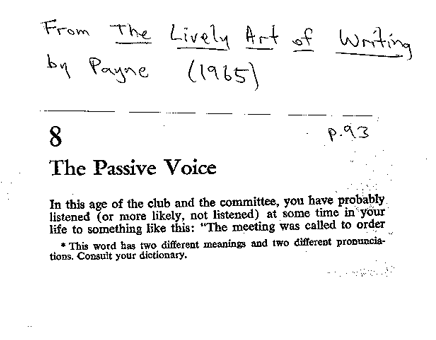
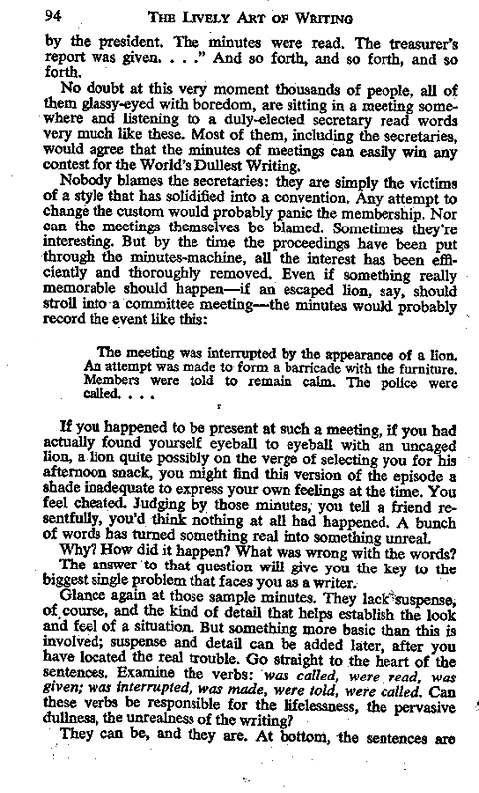
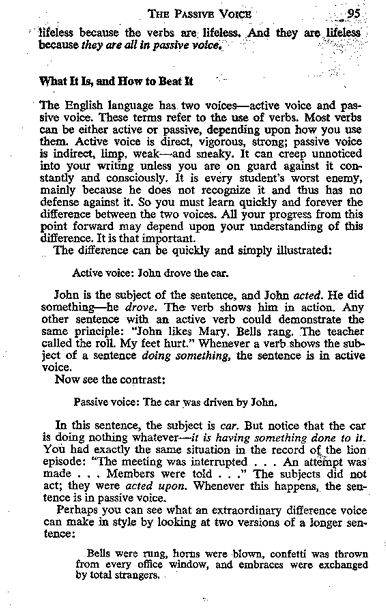
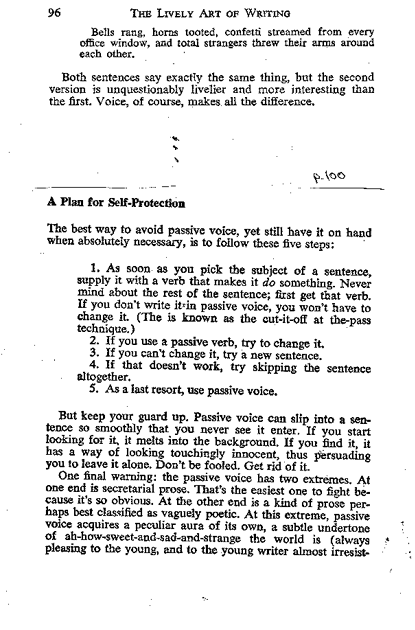
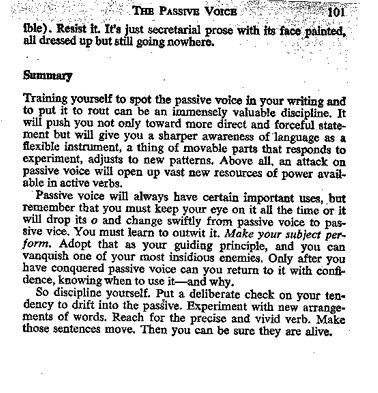
Notes added late 2009 and early 2010
By googling I came across a
fantastic 35-year-old paper paper by a Welsh English professor,
J. Kirkman,
"That pernicious passive voice",
Physics in Technology 6 (1975) 197-200.
(doi: 10.1088/0305-4624/6/5/I01)
"Excessive use of passive verbs creates scientific writing that is cumbersome and indigestible to read.
Greater use of active verbs, with a judicious use of personal and impersonal constructions,
produces writing that is more readable yet retains the necessary clarity of meaning
and propriety of tone for scientific papers."
By "personal constructions", he is of course referring to using "I" or "we".
The top general-science journals in both the U.K and the U.S. agree:
Nature's
statement is
"Nature journals like authors to write in the active voice ('we
performed the experiment...' ) as experience has shown that readers
find concepts and results to be conveyed more clearly if written
directly."
Science's
statement is
"Use active voice when suitable, particularly when necessary for correct syntax
(e.g., `To address this possibility, we constructed a LambdaZap library . . .,' not `To address this possibility,
a LambdaZap library was constructed . . .')."



























